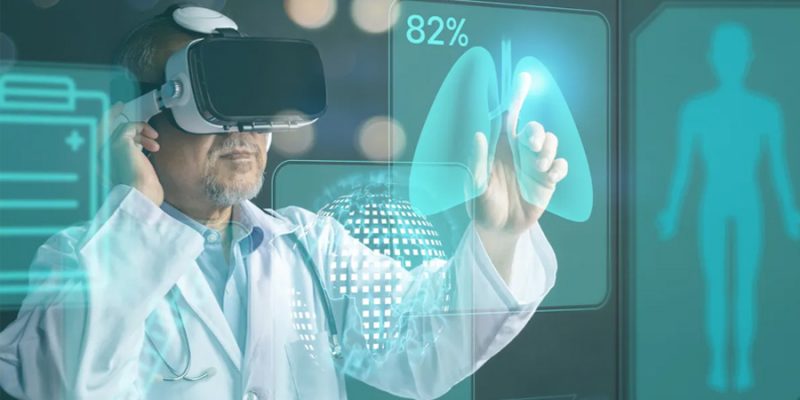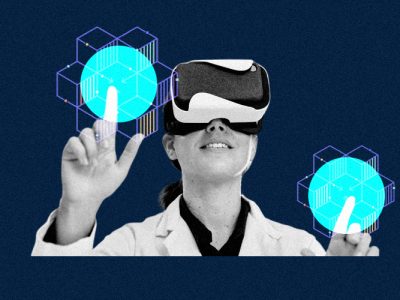
Hospitals enter the metaverse with virtual reality to help patients in every aspect.
For years now, healthcare delivery entailed the physical contact between a patient and physician as a basic means to obtain medical treatment, diagnosis, or operative care. This changed a little with the arrival of telehealth and metaverse, which delivered the patient-physician connection through digital means and with the help of the internet. But these paradigms are currently at the cusp of an even bigger, more monumental figure of unprecedented disturbance, as augmented and virtual reality (AR/VR) are rapidly bringing forth possibilities that were not at all formerly imagined by any one of us. Virtual reality and the metaverse are so much in demand after the long effect of COVID-19 worldwide. COVID-19 has changed all the perspectives of life. As we know that healthcare industry has played a very vital and foremost role during the whole of COVID-19 thus to make a drastic change in its operation is the demand of the hour and keeping in mind the same thing Apollo has become the first hospital to enter metaverse by introducing virtual reality platform which not only helps patients but it helps hospitals too.
Apollo Hospitals Group has introduced a completely unique collaboration with ‘8chili Inc’ to allow engagement in the metaverse, in the first-of-its-type initiative. Virtual truth will offer an immersive enjoyment that has been validated to grow affected person engagement and ability mastery for hands-on training.
Patient counseling pre/post-operation in virtual reality will assist increase patient outcomes by bringing customary environments filled with relaxing “narratives” in order to induce control over one’s own body and physiological response. It may also engage the customers in virtual reality-mediated sports to empower their abilities to alter emotions. This customized method for each patient will assist bring about better patient satisfaction.
Two of Southeast Asia’s largest hospital operators see big opportunities in using virtual and augmented reality to boost their telemedicine services, with patients one day potentially turning to the metaverse to help them recover.
Malaysia-based IHH Healthcare and Indonesia’s Siloam International Hospitals have been tapping telemedicine in the face of the COVID-19 pandemic, using technology to reach patients hit by movement restrictions or in remote areas, as well as beginning to explore artificial intelligence and data analysis to support diagnosis and improve quality of care.
Now they think the buzz around VR, AR, and the metaverse is set to expand beyond video games and into health care.
IHH operates 80 hospitals in 10 countries, with Malaysia, Singapore, India, and Turkey its major markets. Its hospitals include some of the region’s most prestigious names, such as Mount Elizabeth in Singapore and Gleneagles in Malaysia and several other markets, where wealthy patients from Indonesia, the Middle East, and elsewhere come for treatment.
IHH invested in Singaporean telehealth company Doctor Anywhere in 2020 by joining the startup’s US$27 million funding round. It made an additional investment in the company last year.
Siloam, meanwhile, runs 40 hospitals in 30 cities across the Indonesian archipelago, which is Southeast Asia’s largest economy. Part of local property conglomerate Lippo Group, the hospital chain has launched and keeps developing its own mobile telemedicine app MySiloam, and has made “strategic investments” in Prixa.ai, a Jakarta-based medical diagnosis platform startup.



















